T3 thyroid hormone is one of the most important thyroid hormones out there.
This doesn’t mean that T2 or T4 aren’t important, because they are, but you still have to recognize that most of the activity at the thyroid hormone receptor comes from T3.
This means all of the things that you want your thyroid to do like help your hair grow, boost your metabolism, help you feel happy and less moody, and so on, all come from the actions of T3.
For this reason, maintaining adequate T3 serum levels should be your top priority!
Which is why today we are going to talk about the most common causes of low T3 so that you can protect your T3 levels and ensure that you feel your very best.
And #1 on that list is…
DOWNLOAD FREE RESOURCES
Foods to Avoid if you Have Thyroid Problems:
I’ve found that these 10 foods cause the most problems for thyroid patients. Learn which foods you should avoid if you have thyroid disease of any type.
The Complete List of Thyroid Lab tests:
The list includes optimal ranges, normal ranges, and the complete list of tests you need to diagnose and manage thyroid disease correctly!
#1. Thyroid Gland Problems
Problems with the thyroid gland are by far the most common cause of low thyroid problems and the reason is simple:
If your thyroid gland isn’t working then it won’t be able to do its job which is to produce hormones.
And if your thyroid gland can’t produce thyroid hormones then those thyroid hormones will fall in the blood and you will end up hypothyroid.
This concept is straightforward but what isn’t as straightforward is how your body gets T3.
When you look at those numbers you see something very interesting:
The vast majority of thyroid hormone produced by the thyroid gland is in the form of T4 and this number ranges anywhere from 80 to 90% depending on which study you look at (1).
This leaves only about 10-20% leftover which is the amount of T3 produced by the thyroid gland each day.
Even though the thyroid gland isn’t a major producer of T3, it is a major producer of the thyroid hormone that eventually turns into T3.
Which is why, even though it may be a little counterintuitive, thyroid gland problems often result in low T3.
This brings us to #2 which is…
#2. Decreased T4 to T3 Conversion
You can expect the healthy thyroid gland to produce around 30 mcg of T3 each day.
Of this 30 mcg of T3, only around 5 mcg are created directly by the thyroid gland, and the rest (about 25 mcg) is created through T4 to T3 conversion (2).
Remember:
The majority of thyroid hormone produced by the thyroid gland is in the form of T4 and the majority of T3 created by the body comes from the conversion of T4 into T3.
You may need to hear that a couple of times for it to sink in so make sure to rewind if needed.
Now back to thyroid conversion for a second:
This conversion process occurs when the body uses enzymes to remove iodine molecules from T4 which then turns it into T3.
Because these enzymes can be found all over the body, and in different tissues, your body can create T3 when, and only when, it needs it.
But there’s one big problem:
There are a LOT of conditions that can interfere with this conversion process and act to either prevent it from happening or slow it down significantly.
Two of the biggest perpetrators of reduced T4 to T3 conversion are carbohydrate and calorie restriction.
Whether you are cutting back your calories because you want to lose weight or reducing your carbohydrate intake by following a keto or carnivore diet, both conditions can slow this process down thereby leading to low T3 (3).
What makes this particular problem more sinister is the fact that you’d never know it existed unless you are specifically looking for it.
The only way to identify thyroid conversion issues is by looking at a combination of free T3, total T3, and reverse T3 levels, which are lab tests not often ordered by doctors.
Standard thyroid lab tests like the TSH and free T4 won’t cut it and won’t tell you if this is an issue you are facing.
Given that most of the t3 that your body creates comes from thyroid conversion, and the frequency with which problems arise in this process, this is by far the most common cause of low T3.
Next on the list is…
#3. Relative T3 Deficiency (Thyroid Resistance)
Let’s recap real quick:
If your thyroid gland can’t produce thyroid hormone you’ll end up with low T3.
Likewise, If your body is unable to convert T4 into T3 you’ll end up with low T3 but through a different mechanism.
But what if your cells are resistant to T3 thyroid hormone? What then?
You won’t end up with low T3 in your blood per se, but you will end up with a functional low T3-like syndrome.
In other words, even though you technically have enough T3 floating around in your system so you won’t get flagged as having low T3, your cells are unable to use it so it’s as if it isn’t there at all.
This condition is known as thyroid resistance and it’s emerging as a common cause of thyroid dysfunction (4).

This resistance syndrome is not very different from other hormone resistance syndromes that exist out there such as insulin resistance, progesterone resistance, and leptin resistance.
The main difference is that thyroid resistance is not as well studied nor understood but there’s a lot of evidence that suggests it’s more important and more common than originally thought.
Right now, the best way to tell if this is an issue for you is to rule out all other causes first and then assess whether or not your symptoms persist.
If they do, and everything else looks good, thyroid resistance may be your primary issue.
#4. Illness or chronic medical conditions
Let’s imagine that your thyroid gland is working perfectly, that your thyroid can convert T4 into T3 just fine, and that your cells are perfectly sensitive to T3 but you have other chronic medical conditions like, perhaps, metabolic syndrome, obesity, or high blood pressure.
The presence of either acute or chronic and long-lasting, medical conditions, can negatively impact your thyroid lab tests.
This condition, known as non-thyroidal illness (5), is another common cause of low T3.
And, unfortunately, doctors aren’t sure what to make of it.
Some doctors will say that it’s a normal physiologic response to these conditions and doesn’t warrant any intervention or treatment.
But there are others, myself included, who think that it’s more than this.
The question is really, do you treat someone with low T3 caused by other non-thyroid problems or do you let them ride it out and simply monitor their labs?
It’s not clear whether the use of T3 thyroid medication is a good idea in this type of situation but I do know what is:
Ignore your thyroid and manage the other underlying conditions so they can relieve pressure on your thyroid.
If you are someone taking 3-5 prescription medications for medical conditions, there’s a good chance that changing your lifestyle can help you treat these problems and get off those medications.
Things like changing your diet, exercising regularly, reducing your stress, and sleeping more, can go a long way to improving your health and reversing these chronic diseases.
And I have free information that can help you do just that.
So if you think your medical conditions are causing a non-thyroidal illness, make sure to address them first.
That way, you don’t even need to worry about whether or not thyroid medication will be helpful or harmful in your specific case.
#5. Nutrient Deficiencies
If we look closely at the steps required for the body to adequately create and use T3 thyroid hormone, we see the necessity of vitamins at every level.
And, just like you might imagine, if there is a deficiency in any of these nutrients, your body’s ability to use T3 will suffer.
Take for instance the creation of thyroid hormone:
I already told you that problems with your thyroid gland can limit your production of T3, which is true.
And even though the most common cause of direct thyroid gland problems is the autoimmune disease Hashimoto’s, nutrient deficiencies are high up on that list as well.
Iodine, iron, and tyrosine are all needed by your thyroid gland to create thyroid hormone.
Deficiencies in tyrosine are not very common, but deficiencies in iodine and iron definitely are.
And these are just the nutrients required to create thyroid hormone.
Other minerals like zinc and selenium are required for your body to convert thyroid hormone and vitamin A is required for thyroid hormone cellular activity.
It would be one thing if deficiencies weren’t very common, which means their negative impact on thyroid function would be rare, but that’s not the case.
Based on research, 40% of Americans don’t get the vitamin A they need from their diet, 12% of the population is at risk for zinc deficiency (this number jumps to 40% in the elderly) (6), and 17% of premenopausal women are iron deficient.
These are not insignificant numbers and there are physiologic data to suggest that deficiencies in these vitamins and minerals may be a real cause of low T3 (7).
Fortunately, it’s really easy to resolve nutrient deficiencies so this is a cause of low T3 you won’t want to miss.
#6. Prescription Medications
There are tons and tons of medications that can interfere with your thyroid and some of them are prescribed for common conditions like depression and high blood sugar.
From thyroid hormone production to thyroid hormone conversion to even thyroid communication with the brain, prescription medications can negatively impact your thyroid in different ways.
And it’s my opinion that medications are a very common and often overlooked cause of low T3.
Here are just a few that you should be aware of:
Drugs that interfere with T4 and T3 levels include:
- Antidepressants (such as SSRIs)
- Lithium
- Iodide
- Amiodarone
- Pain medications and narcotics
- Beta-blockers
Drugs that interfere with TSH levels include (8):
- metformin
- Steroids
- Dopamine agonists
And Drugs that impact thyroid hormone binding and transport include:
- Estrogens in contraceptives and HRT
- Steroids
- And Non-steroidal anti-inflammatory medications like ibuprofen and aspirin
If you know or suspect that you have low T3 then make sure to take a look at your medications.
Even if you must take a prescription medication, there are almost always alternatives that don’t cause thyroid problems.
If you think that any of these problems may be impacting your T3 level then you will probably want to know how to naturally increase your T3 level.
And to do that, I’d recommend checking out this article next.
Now I want to hear from you:
Have you had your T3 levels tested? Are they low?
Do you suspect you have low T3?
Do any of the causes listed above apply to you?
Leave your questions or comments below!
Scientific References
#1. ncbi.nlm.nih.gov/books/NBK499850/
#2. ncbi.nlm.nih.gov/pmc/articles/PMC4699302/
#3. pubmed.ncbi.nlm.nih.gov/3051835/
#4. pubmed.ncbi.nlm.nih.gov/17383828/
#5. pubmed.ncbi.nlm.nih.gov/21724536/
#6. today.oregonstate.edu/archives/2009/sep/zinc-deficiencies-global-concern
#7. ncbi.nlm.nih.gov/pmc/articles/PMC3746228/
#8. ncbi.nlm.nih.gov/pmc/articles/PMC2784889/
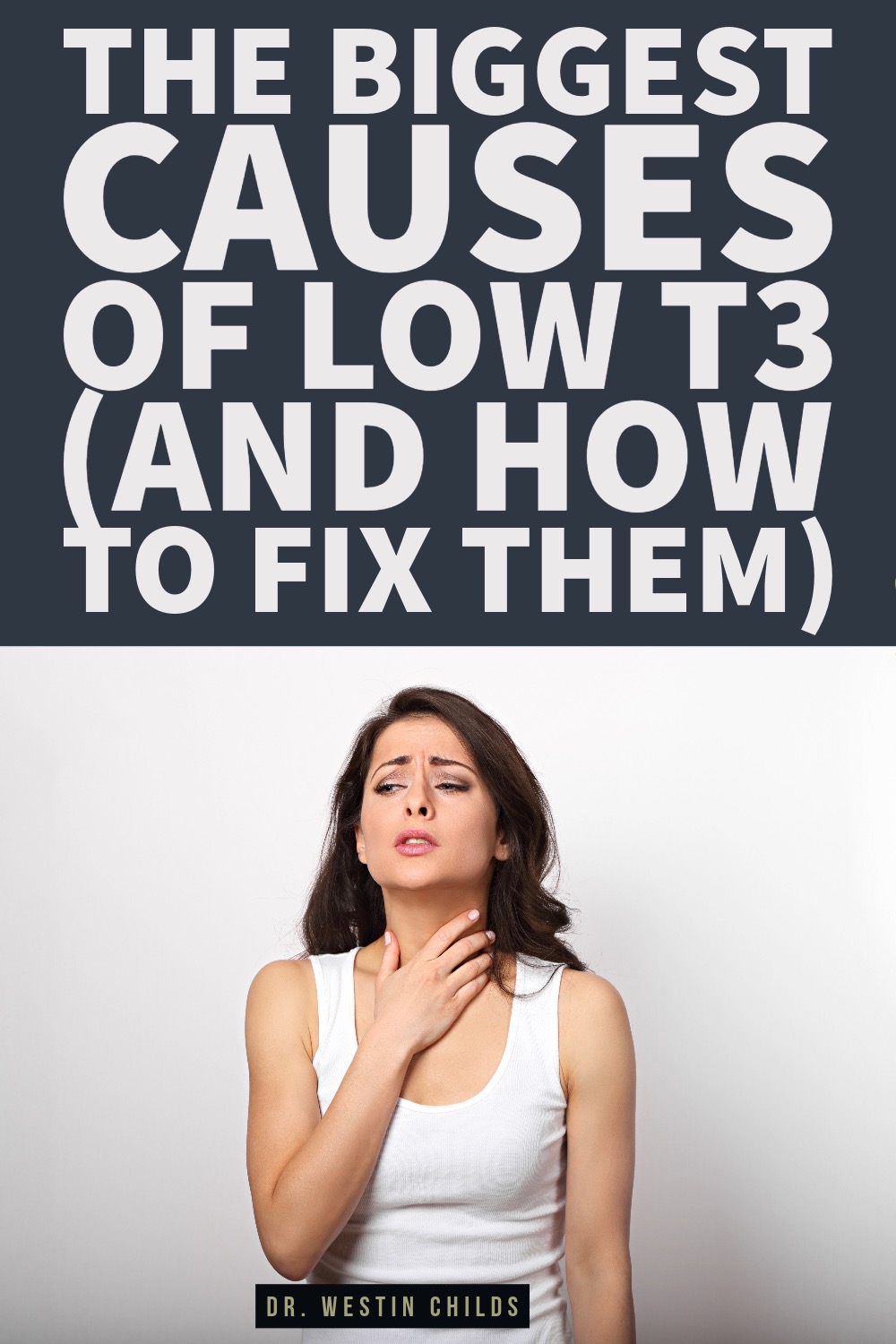
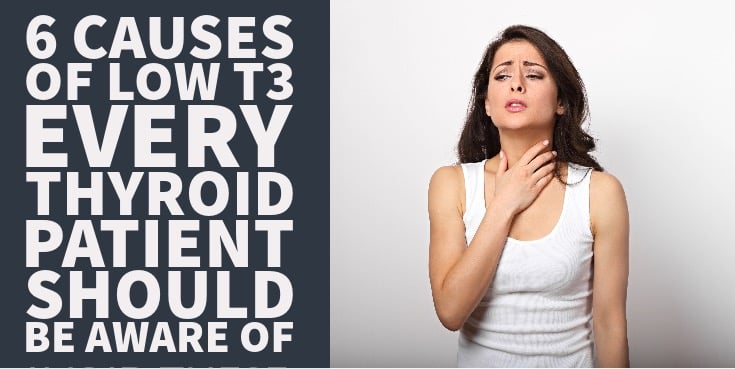

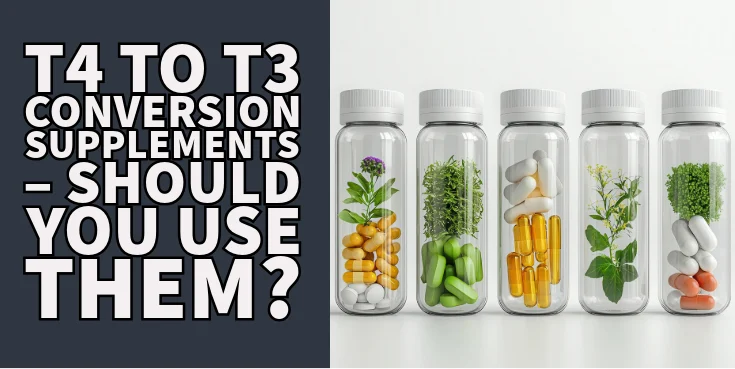
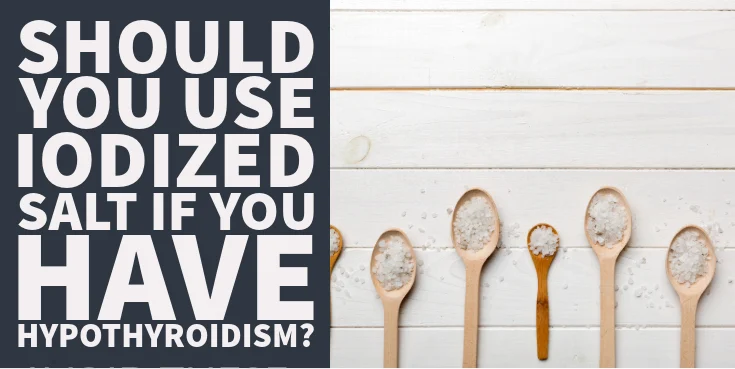
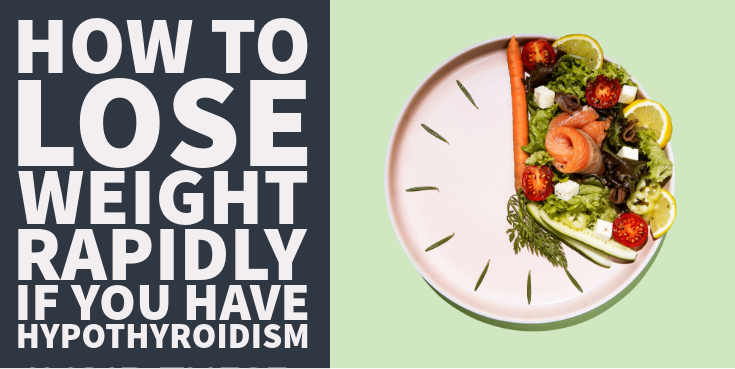
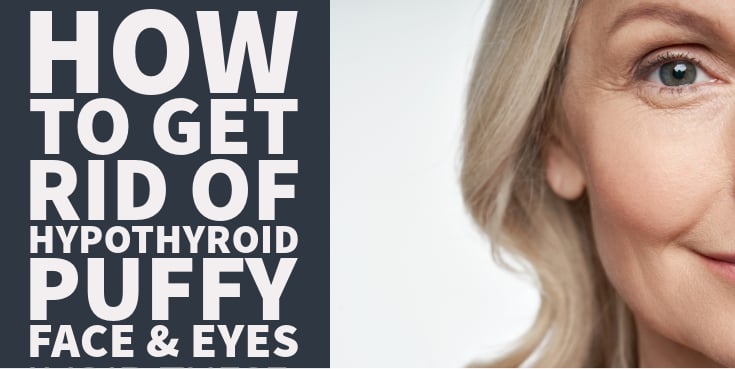
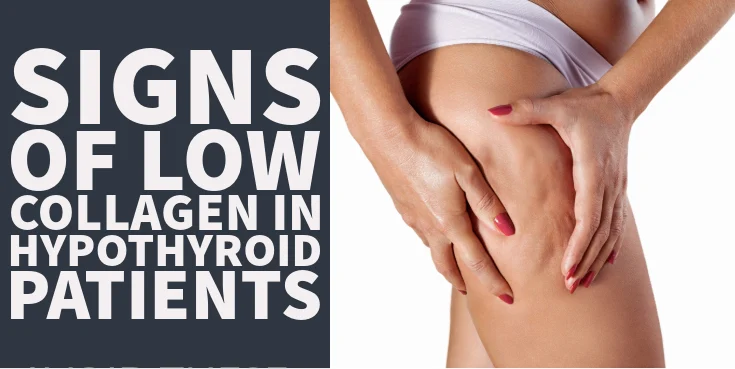
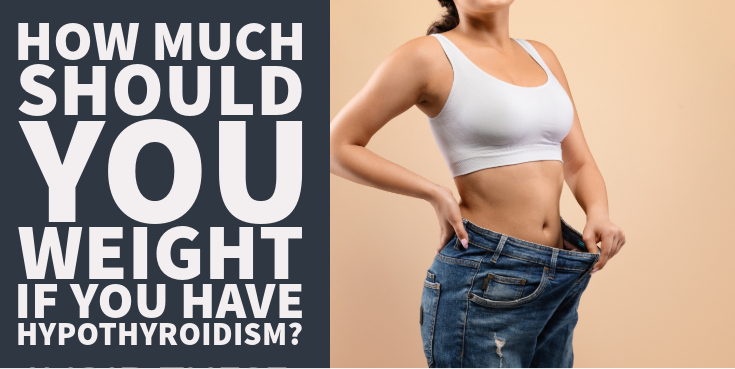

This is the most thorough explanation of hypothyroidism I have found with the exception of Broda Barnes. I am hypothyroid and have been for at least 50 years that I know of. I take T4 and cytomel and it seems to work for me. I tried Armour for many years and did not get the results
that I have with synthroid and cytomel. I am 73, bike 8 miles a day weather permitting, do weights, walk and my
BMI is on the low of end of normal for my height. Hypothyroidism is one thing you have to keep a handle on yourself. Many doctors will tell you this minute dose is all you need while you know that you can’t even get off the couch. I would say don’t be discouraqed and press on your information is invaluable.
Hi Debbie,
Glad to hear you found it helpful! It sounds like you’ve been doing your research over the years which, I would say, is certainly critical for thyroid patients who want to feel their best.
I have no thyroid caused by graves disease. I am tired, no ambition, a lot of mental fog, get irritable, constipated and have stomach and intestinal irritation. I take 88 mcg levothyroxine and 5 mcg liothyronine, t3. What is wrong. I tried dessicated thyroid but had antigen attack, got very sick and went back on levothyroxine.
Hi June,
You will want to start with a comprehensive set of labs to determine what issues need to be resolved: https://www.restartmed.com/normal-thyroid-levels/
I have been taking synthroid (137mg) and Cytomel (morning and afternoon, for a total of 0,37) for many years and was feeling good.
My endo retired and now all doctors say it’s too much Cytomel and we need to reduce that.
I’ve been reducing for more than 1 year now and gain 30 lbs, lost a lot of hair, always cold, no energy, always depressed, and more.
No doctor wants to give me back the T3 dose I was talking for many years.
I just fell dead inside.
Hi Josie,
Unfortunately, that is expected because as you reduce your T3 dose you become more hypothyroid. You can ask your doctors if it’s truly safer to be 30 pounds heavier than to take T3. Given that obesity is proven to increase the risk of cancer, heart disease, and stroke, it will be hard to suggest with a straight face that T3 is somehow more harmful.
In a world where hormones are handed out like candy in other situations, it seems silly to restrict T3 from patients who can clearly benefit from it. Likely the only way to get back to your old dose is to find more open minded doctors and that will mean looking outside of insurance.
Dr Child’s, thank you so much for this much needed information. I have been on 75 mcg of levothroid for years. Just got labs back and my TSH level is .41. I was told I had hypothyroidism. Now with your info may not be the case as symptoms over the years are heart palpatations, anxiety and lately loose bowels frequently. I take propranalol for the palpatations and low dose .12 mg Xanax daily and amlodopine (sp) for blood pressure. Symptoms of palpatations and anxiety have been worse lately. Will be seeing a new doctor in a few days and will bring up this info and hope Kaiser oks additional tests bc now I’m thinking bc of symptoms may be hyperthyroid although some of my symptoms are hypothyroid.
Wonder if doctors are interpreting the TSH levels correctly thinking low TSH levels mean hypothyroidism which is what I thought for years.
Thank you
Lynn
Hi Lynn,
It would be highly unlikely that your doctor is flipping the interpretation of your TSH. It’s possible you are just sensitive to thyroid medication and, if that’s the case, you could confirm that by simply reducing your dose. If symptoms ease or disappear then you have your answer.
Hello Doctor!
I got a thyroidectomie 8 years ago, was strugling with levothyroxine and then a doctor recommend me Erfa Thyroid( desicated thyroid). Living in Belgium and it s really hard to get this kind of medication here but succeded. But it s a rollercoster …TSH never in the range but( 0,04mu/l) my late blood test show that Ft3 is 2,5pmol/l( 2,6-5,4) and Ft4 is 10,6 pmol/l ( 9-19). I;m currently on 75 mg of Erfa.May you be so kind to give me an advice?
Thank you ,
Andrada
Labs just checked. TSH .04, free T4 .83, free t3 2.2, total t4 5.6, total t3 90 ng/dl. Doctor immediately wants to reduce meds. I take progesterone, not sure if that is effecting things.
Hi Rhonda,
It’s possible, but the effect of progesterone would be limited. It’s generally a very unwise decision to lower thyroid medication based on a single test, especially in the absence of hyperthyroid symptoms or signs of bone loss/heart problems. It’s likely that this will make your symptoms worse so I would proceed with caution.
My T4 has not been converted to T3 three years. I’ve tried on my thyroid and felt horrible on it. My T3 is the very end of low normal before it’s under. I feel horrible. Can’t sleep tired all the time. My integrative doctor prescribed 5 mcg T3, which I take with 175 MCG’s of tirosint one hour apart each other. However, I take those first thing in the morning so by 3 o’clock I feel like crap again. Haven’t tested yet with the T3 in about three weeks. My endocrinologist does not know my doctor prescribed it because she was against it. Should I be taking the T3 twice today and divide the dose up. 6 mg of iodine.
Hi Merrel,
Some people do find benefit when multi dosing T3 throughout the day, but it’s not always needed. What’s probably more important here is the ratio of T4:T3 that you are taking. Your ratio is incredibly lopsided in favor of T4 when the body has a ratio of T4:T3 that’s closer to 80:20.
Great information, thank you. I am desperate, I asked endo dr. for T3 and he refuses, he thinks I am crazy. He is stubborn and arrogant. Found a new endo dr. but he won’t either, and neither think antibodies are important. Had an outside lab done and antibodies were 1543….I have been losing hair for years, constipated, no energy, muscle pain, cold, depressed at times. Was on levothyroxine and he refused leothyronine….so went back to 45mg Armour. Right side of head almost bald and top as well, thin all over. Had left side of gland removed 3 yrs ago due to slight enlargement. They said it could become cancer. I need help. I hate losing my hair and eyebrows…. I have hypertension for 20 + yrs (90mg Procardia); about 6 months ago, had weak & dizzy episodes in AM. They did carotid doppler & 23 day heart monitor. Diagnosed A fib. So now I’m on eloquis !!!! I hate all these pharmaceuticals. I try to drink water, and exercise 4-5 days a week. Now I am having leg(s) edema even after exercise. I strongly believe I am low on T3. I need more than a boost. Please recommend what I should take to provide T3. I have been low for a long time but drs. don’t know nor care. Thank you. Please send an email (I am in your system) because I won’t see your answer here.
Can you elaborate on the difference between iodine and iodide? I’m confused as to why a form of iodine hurting your thyroid or conversion.
I have had sleep problems for 20 years, originally from gut yeast and bacterial overgrowth. Had recent gut tests and STILL have same issues. I stopped all sugar one month ago and started anti-yeast supplements and am doing somewhat better. Sleep is still elusive though improving. I take 100mcg Levo 1 hr before breakfast. I used to take Armour and also took OTC desiccated bovine thyroid 2-3 times a day. I still have to take the OTC thyroid glandular 2-3 times per day- even overnight sometimes which can help my sleep. (Seems paradoxical) I take your multi now and your T3 conversion product. Why does it seem to me that the 100mcg Levo does nothing at all? Any comment? Thanks.
Hi Jeffrey,
The most likely reason is that your body isn’t readily converting the T4 found in levothyroxine to T3, but you could also be reacting to other ingredients or you could be missing something: https://www.restartmed.com/medical-conditions-that-mimic-hypothyroidism/
I am on your essential T2 ad T3 conv. booster. I take 45 mg Armour. Selenium, zinc, D3 and more. I am losing my hair badly and have done PRP, LLL cap, hair vit. silica gel, Drs only test TSH.I may have low T3. I am on a beta blocker for HTN which I must take. I exercise and am not over weight. I am thinking of taking the 3 lab tests you mentioned. What shall I do? Please help. I am desperate. Thanks JF
Hi Jan,
I would recommend checking out the treatments for hair loss found on these pages:
https://www.restartmed.com/thyroid-hair-loss/
https://www.restartmed.com/treatments-for-thyroid-hair-loss/
Hi Doc…great article. read it several times when you have posted it.
my question is like debbies above. I have taken potassium iodide 225mg from pure encapsulations. you state that iodide is not good for the thyroid?? what is iodine? Lugols Iodine? is that the better choice?
I have been carnivore for 9 yrs. the abstract you linked to about calorie restriction etc was from 1988. is there more recent research I can take to my endo doc? my free t3 is 2.4, my reverse t3 is about 30.
thanks for your reply if you get this and can respond.
colt
Hi Colt,
Iodine and iodide are two forms of the same element. Iodide is just its ionic form that has an extra electron and is the form used by the body. Iodine is the elemental form but it must be converted into iodide in order to be used.
Doc, readers are getting confused as you wrote under “#6. Prescription Medications” that “iodide” can cause issues and then you want people to take iodine.
Hi Krishna,
Both statements are true. If taken in excess, iodine can cause problems. If taken at the right amount, the amount I recommend, it will not. You can learn more about dosing and safety here: https://www.restartmed.com/prescription-medications-that-block-thyroid-function/
Wow! This is so interesting! I’ve been carnivore for almost a year now, and recently discovered my T3 is low, but TSH and T4 are normal (ish). I’ve been feeling so crummy lately. But I love carnivore and have reaped so many other health benefits. Any suggestions on how to balance the two?
Hi Valerie,
I would recommend reading these articles for more information on carnivore, carbohydrate intake, and thyroid function:
https://www.restartmed.com/carnivore-diet-thyroid-problems/
https://www.restartmed.com/how-many-carbs-should-you-eat-with-hypothyroidism/